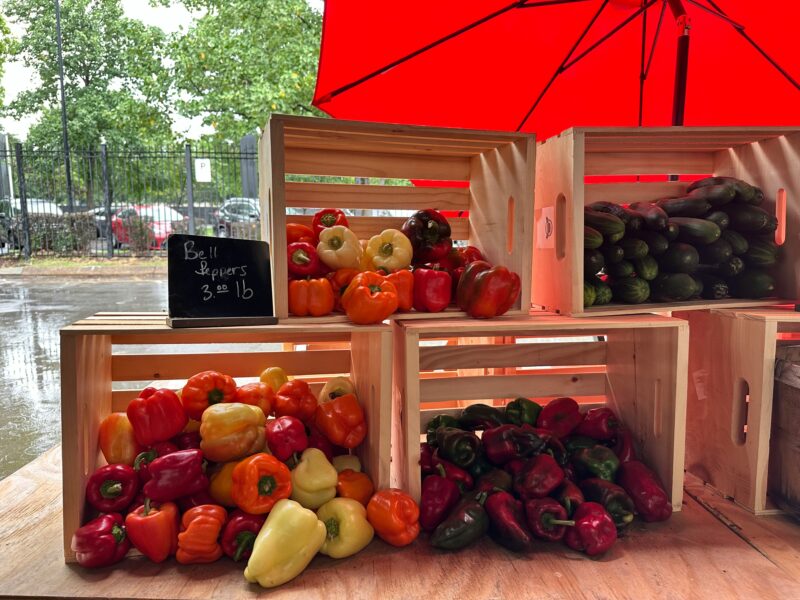Organic is more important to consumers than ever before. With growing environmental concerns and the desire for healthier living, 82% of American shoppers say they buy at least some organic food regularly. This is according to the 2021 Sustainability Performance Report from Fonterra, the globally recognized New Zealand Dairy Co-operative. Seeking an understanding of where and how our food is grown, consumers feel like they can trust organic food more than conventional food products because the industry has more regulation and oversight in the U.S. USDA encourages farmers to go organic with a $300 million initiative. Billed by the department as a way to “help build new and better markets and streams of income for farmers and producers” of organic products, the $300 million investment aims not only to increase the number of organic farmers but also make it easy for shoppers to get their hands on organic foods. Despite the seeming ubiquity of “organic” labeling, the USDA says that the number of non-certified organic farms looking to switch to organic status has dropped by nearly 71 percent since 2008 — a trend this program hopes to reverse. For Colorado’s organic farmers, a Denver startup provides an opportunity to reach more shoppers. Local farmers can have many different revenue streams, but they’re not all created equal. Some farmers may wholesale their produce to grocery stores or, perhaps they’ll sell directly to restaurants. But according to two local farmers who recently spoke with Rocky Mountain PBS, the real money is in farmers’ markets. Some studies show that farmers make “40%-70% more for their products at the market than selling them through wholesale outlets.” 10,000 farmers of Telangana, Andhra are steering a silent movement dubbed an organic takeover. A federation of farmer-producer organizations has tapped into the growing organic market to help members raise incomes Catering directly to the consumers’ needs assures better marketability and incomes. This is what nearly 10,000 farmers of Telangana and Andhra Pradesh have realized over the past decade and are now steering a silent organic movement. The Environmental Working Group applauds the Environmental Protection Agency for proposing to designate the two most commonly detected toxic “forever chemicals” as hazardous substances under the superfund law. The designation of these two PFAS chemicals, PFOA and PFOS, as hazardous will jumpstart the cleanup process at contaminated sites across the country, including military installations. And a hazardous substance designation would also help the EPA ensure that some polluters responsible for PFAS contamination pay for the cleanup. The upfront costs, and sometimes the total costs, of cleanups, are often paid by the EPA – that is, the American taxpayer – out of a Superfund account.
For Colorado’s organic farmers, a Denver startup provides an opportunity to reach more shoppers
Local farmers can have many different revenue streams, but they’re not all created equal. Some farmers may wholesale their produce to grocery stores or, perhaps they’ll sell directly to restaurants. But according to two local farmers who recently spoke with Rocky Mountain PBS, the real money is in farmers’ markets. Some studies show that farmers make “40%-70% more for their products at the market than selling them through wholesale outlets.”
USDA Encourages Farmers to Go Organic with $300 Million Initiative
Billed by the department as a way to “help build new and better markets and streams of income for farmers and producers” of organic products, the $300 million investment aims not only to increase the number of organic farmers, but also make it easy for shoppers to get their hands on organic foods. Despite the seeming ubiquity of “organic” labeling, the USDA says that the number of non-certified organic farms looking to switch to organic status has dropped by nearly 71 percent since 2008 — a trend this program hopes to reverse.
https://www.foodandwine.com/news/usda-funding-organic-produce-farming-diversity
Organic is more important to consumers than ever before
Organic is more important to consumers than ever before. With growing environmental concerns and the desire for healthier living, 82% of American shoppers say they buy at least some organic food regularly. This is according to the 2021 Sustainability Performance Report from Fonterra, the globally recognized New Zealand Dairy Co-operative. Seeking an understanding of where and how our food is grown, consumers feel like they can trust organic food more than conventional food products because the industry has more regulation and oversight in the U.S.
https://www.fooddive.com/spons/organic-is-more-important-to-consumers-than-ever-before/630000/
EPA hazardous substance proposal holds ‘forever chemicals’ polluters accountable
The Environmental Working Group applauds the Environmental Protection Agency for proposing to designate the two most commonly detected toxic “forever chemicals” as hazardous substances under the Superfund law.
Organic takeover: How 10,000 farmers of Telangana, Andhra are steering a silent movement
A federation of farmer-producer organisations has tapped into the growing organic market to help members raise incomes Catering directly to the consumers’ needs assures better marketability and incomes. This is what nearly 10,000 farmers of Telangana and Andhra Pradesh have realised over the past decade and are now steering a silent organic movement.









